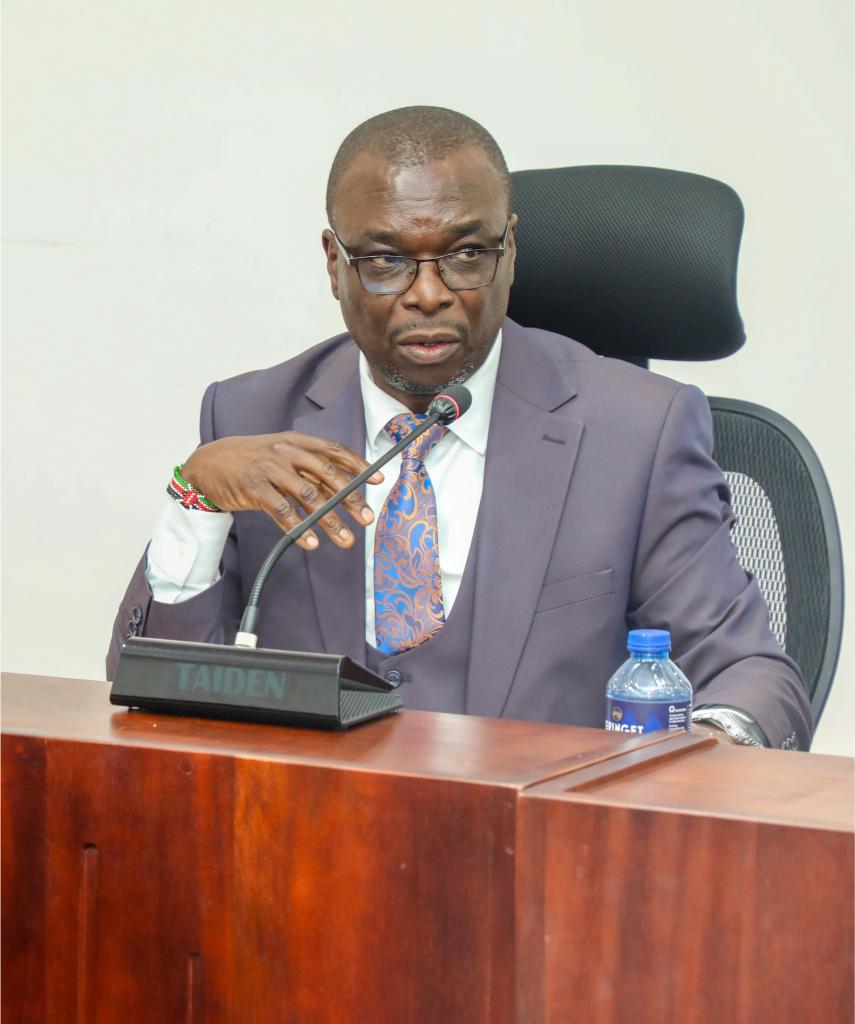KNBS under fire for favouring five tribes in new recruitments

Despite the broad ethnic landscape of Kenya, 14 communities are entirely absent from the KNBS workforce, a fact Obudho admitted to the committee without providing a list of those left out.
The Kenya National Bureau of Statistics (KNBS) is under sharp scrutiny from the Senate over its hiring practices, after it emerged that recent recruitments at the agency heavily favoured five major ethnic groups, while 14 communities remain entirely unrepresented in its workforce.
Appearing before the Senate Committee on National Cohesion, Equal Opportunity, and Regional Integration, KNBS Director General Macdonald Obudho was put to task to explain the ethnic distribution of staff at the bureau, following the recruitment of 31 new employees.
Lawmakers on Monday questioned why these positions were again taken up by members of the Kikuyu, Luo, Luhya, Kamba, and Kalenjin communities, who already account for more than 60 percent of the bureau’s 506 workers.
According to Obudho, the current staff composition includes 102 Kikuyu, 84 Luo, 60 Luhya, 58 Kamba and 50 Kalenjin. He also revealed that Somalis make up 31 staff members, Embu 13, Meru 10, and Borana nine.
Mijikenda (8), Gabra (5), Kuria (4), Pokot (3), and Turkana (3) are also represented, while smaller communities such as the Bajuni, Suba, Burji, Pokomo, Samburu, Taita, and Taveta have two staff members each. The Boni-Sanye, El Molo, Kenyan Arabs, Mbeere, Ilchamus/Njemps, Nubi, Rendile, and Sakuye each have one employee at the bureau.
Despite the broad ethnic landscape of Kenya, 14 communities are entirely absent from the KNBS workforce, a fact Obudho admitted to the committee without providing a list of those left out.
This omission drew the ire of the committee, which demanded to know why the newly filled 31 vacancies were not used to bring those excluded groups on board.
Documents presented to the committee show that among the 31 recently hired staff, two are Kikuyu, three Luo, three Luhya, three Kamba and two Kalenjin further entrenching the dominance of these five groups.
Committee chairperson, Marsabit Senator Mohamed Chute, said this pattern goes against Article 232 of the Constitution and Section 7 of the National Cohesion and Integration Act (2008), which require public offices to reflect Kenya’s ethnic diversity and ensure no more than one-third of employees come from the same community.
“We want to know how the 31 new recruits were chosen when 14 ethnic groups have never been employed by KNBS. Why are those communities still left out?” Senator Chute asked.
He ordered Obudho to submit full documentation on the recruitment process, including the number of applicants, longlisted and shortlisted candidates, and the scoring system used, for further scrutiny.
The committee also flagged the presence of six employees who have surpassed the mandatory retirement age of 60, while the youngest staff member at the agency is just 22 years old.
Nominated Senator Beth Syengo criticised the skewed employment, pointing out that the five dominant groups enjoy a disproportionate share of the jobs.
“If you take the five communities of Kikuyu, Luo, Luhya, Kamba and Kalenjin, they already account for 60 percent of total employment. Why do you leave the rest of the 31 ethnicities to struggle for 40 percent of the slots? This is very unfair,” she said.
Syengo also questioned the classification of Pokot as separate from the Kalenjin, yet the community is often considered part of the larger Kalenjin ethnic group. In his response, Obudho defended the hiring strategy, saying it was guided by population data from the national census.
“We are trying to bring on board other communities as we continue to recruit new staff,” he said, adding: “Some ethnic communities do not apply but we are trying to undertake affirmative action to regularise the ethnic representation.”
During the session held on July 14 at Parliament Buildings, senators also interrogated KNBS on other aspects of inclusion, including gender balance, age distribution, and the inclusion of persons with disabilities.
Obudho said KNBS had applied measures to ensure that no more than two-thirds of its employees are of the same gender and that at least five percent are persons with disabilities. He added that diversity and equity form a core part of the bureau’s human resource strategy.
However, senators expressed dissatisfaction with the response, citing a lack of proper documentation to back the claims. “The committee finds the documentation inadequate. We cannot verify your claims without data,” Senator Chute said.
The committee directed Obudho to submit KNBS’s gender mainstreaming policy within seven days, along with data showing the percentage breakdown of men, women, youth, and persons with disabilities employed at the agency.
The lawmakers stressed that KNBS, as a key national institution established under the Statistics Act, must take the lead in promoting inclusive hiring and equitable representation in public service. The probe is part of a broader effort by the Senate to ensure government agencies align with the Constitution’s values of fairness and inclusivity.
